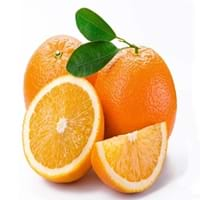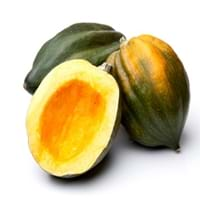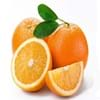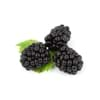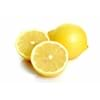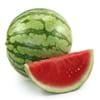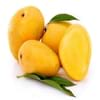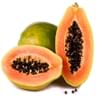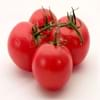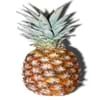Health Benefits
Arthritis treatment, Cancer prevention, Increases metabolic rate, Kidney stone treatment, Lower blood pressure, Prevents constipation, Prevents diabetes, Strengthening of bones, Ulcer treatment, Weight loss properties
Anti-inflammatory properties, Arthritis treatment, Regulates Blood Sugar
General Benefits
Boosts immune system, Controls blood pressure, Digestive aid, Improves eye vision, Maintains healthy cholesterol level
Boosts immune system, Controls blood sugar levels, Digestive aid
Skin Benefits
Anti-aging benefits, Brightens and lightens complexion, Hydrates skin, Skin rejuvenation, Treatment of acne, Treatment of dark spots
Nourishes skin, Protects skin from oxidative stress
Hair Benefits
Good conditioner, Prevents hair loss, Regulates hair growth, Treatment of dandruff
Prevents hair loss, Promotes longer and healthier hair, Regulates hair growth
Allergy Symptoms
Abdominal pains, Breathing difficulty, Coughing, Diarrhea, Drop in blood pressure, Fainting, Runny nose, Skin rash, Sneezing, Swelling of mouth, tongue or lips, Vomiting
Asthma, Red rash, Swelling of mouth, tongue or lips
Side Effects
Abdominal cramps, Diarrhoea, Weight gain
Diarrhoea, Vomiting
Best Time to Eat
As a snack in the late afternoon, Don't consume at night and before bed, Eat the fresh ones, avoid mixing with any other foods, don't eat after meal., Morning time (before lunch), Strictly avoid empty stomach
Along with meal, As a snack in the late afternoon, Don't eat after meal, Eat the fresh ones, avoid mixing with any other foods, don't eat after meal.
Vitamin B5 (Pantothenic Acid)
Vitamin C (Ascorbic Acid)
Vitamin E (Tocopherole)
Not Available
Vitamin K (Phyllochinone)
Not Available
Lutein+Zeaxanthin
Not Available
Calories in Fresh Fruit with Peel
Calories in Fresh Fruit without Peel
Not Available
Varieties
Sweet Orange - Persian orange, Navel orange, Valencia orange and Blood orange. Sour Orange - Seville orange, Bergamot orange, Chinotto orange and Daidai.
Bush Table Queen, Heirloom Table Queen, Festival Hybrid, Early Acorn Hybrid, Table Ace, Ebony and Cream of the Crop
Color
Orange
Dark green, Green-yellow, Orange green
Inside Color
Orange
Yellow
Texture
Succulent
Fibrous
Taste
Sweet-Sour
Sweetish
Origin
South-Eastern Asia
Central America, North America, Unknown
Soil Type
Loam, Sandy loam
Well-drained
Climatic Conditions
Hot
Cold, Sunny
Facts about
- There are around 600 varieties of oranges available worldwide.
- More than 1 plant can grow from a single orange seed.
- Orange and orange blossoms are a symbol of love.
- Orange tree is usually propagated by grafting.
- It was named as Acorn Squash for its resemblance to a large ribbed acorn.
- It is said that squash was being grown in Mexico as long as 10,000 years ago.
- It was the first food cultivated by native American Indians.
Top Producer
Brazil
China
Other Countries
China, Egypt, India, Italy, Mexico, South Africa, Spain, Turkey, United States of America
Egypt, India, Iran, Italy, Mexico, Russia, Turkey, Ukraine, United States of America
Top Importer
Germany
Costa Rica
Top Exporter
Spain
United States of America
Botanical Name
Citrus sinensis
Cucurbita Pepo
Synonym
Citrus aurantium L. var. dulcis
Winter Squash
Subkingdom
Tracheobionta
Tracheobionta
Division
Magnoliophyta
Magnoliophyta
Class
Magnoliopsida
Magnoliopsida
Subclass
Rosidae
Dillenhidae
Order
Sapindales
Cucurbitales
Family
Rutaceae
Cucurbitaceae
Species
C. × sinensis
Pepo
Generic Group
Citrus fruit
Not Available
Compare Orange and Acorn squash
It is important compare Orange and Acorn squash as both the fruits have a different nutritional value. Their comparison can be done on the basis of their vitamin and mineral content, calories, benefits as well as characteristics, making it easier for us to choose the best fruit for our diet. Their general health benefits are as follows:
Orange Benefits: boosts immune system, controls blood pressure, digestive aid, improves eye vision and maintains healthy cholesterol level.
Acorn squash Benefits: boosts immune system, controls blood sugar levels and digestive aid.
Fruits are also used as a remedy for various hair problems. The hair benefits of Orange are: good conditioner, prevents hair loss, regulates hair growth and treatment of dandruff and hair benefits of Acorn squash are: prevents hair loss, promotes longer and healthier hair and regulates hair growth. Some fruits are known to cause allergic reactions. The allergy symptoms of first fruit are: abdominal pains, breathing difficulty, coughing, diarrhea, drop in blood pressure, fainting, runny nose, skin rash, sneezing, swelling of mouth tongue or lips and vomiting and the symptoms of second fruit are: asthma, red rash and swelling of mouth, tongue or lips. Get sorted Orange vs Acorn squash comparison with the help of fruit comparison tool by fruitvs.com.
